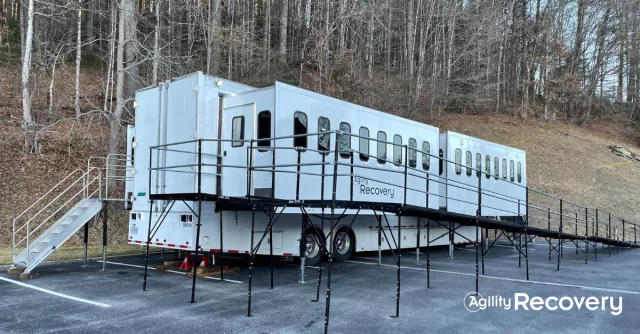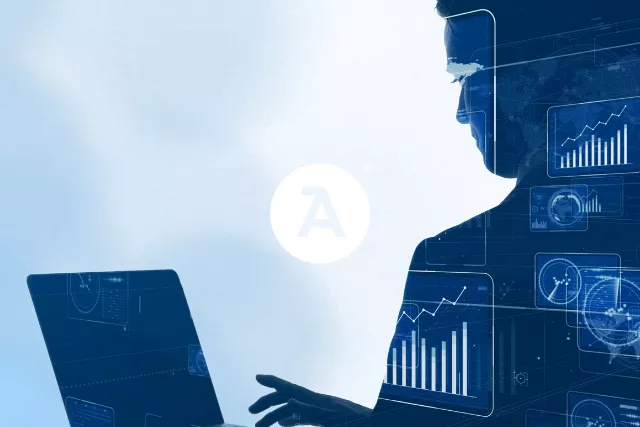6 Disaster Recovery Questions to Ask Your Suppliers Today

Is your organization prepared for an unexpected interruption in its supply chain? To some extent, your business is involved in vendor relations and may have some questions to ask its suppliers.
For most manufacturers, supply chains are their lifeblood, helping them create excellent products and deliver them to customers. Doing so keeps clients satisfied and prompts more purchases.
Your supply chain might function efficiently right now. Yet, supply chains are complex and include third party suppliers, clients, partners, and vendors. That poses a lot of opportunity for a part of your system to go wrong.
But what if something happens, and you don't have a disaster recovery strategy? What does disaster recovery for your suppliers and vendors include? Where do you begin evaluating your vendor's business continuity strategy?
Keep reading to learn what questions you need to be asking your suppliers to keep your products safe and your chain running smoothly!
-
Who Holds Responsibility for Planning Disaster Recovery?
Most businesses hope they never have to use a disaster recovery plan. It doesn't mean that they shouldn't make sure their suppliers have one, though. Why do suppliers need a point person for developing a disaster recovery plan?
If something happens to your supply chain, you'll need clear communication between your team and the suppliers. You won't have time to spend figuring out who is in charge of disaster communications. If you do, you might lose time and money as you're scrambling to come up with a solution.
When you talk to your suppliers about their disaster recovery strategy, inquire about who will be handling communications in the case of a disaster. If possible, get this person's name and contact information. Ask if they have a plan on how to contact you if primary lines of communication go down.
Knowing this information will be necessary should you suffer from a natural disaster that cuts off common communication tactics.
These incidents aren't rare, either. In fact, communication often goes down in winter, when blizzards and other adverse elements cause breakdowns or blackouts.
2. What Disasters Are They Prepared to Handle?
Do you work with new supplier companies who haven't yet experienced a disaster, or do you have one that's prepared to handle it all?
Ask your suppliers which types of disasters they've dealt with in the past and if they have recovered successfully. Answers to these business continuity questions will give you a good idea of what you can expect should your company experience a similar event.
A company will likely experience an event that interrupts their business. In a 2017 survey, 74% of participating companies experienced a disruption to the continuation of their services.
As a result, all companies need to be prepared for natural disasters and other events that wreak havoc on their supply chain. That's why they should ask about disaster recovery for suppliers. You need to know that they have a business continuity and disaster recovery plan for as many different types of unforeseen events as possible.
That way, you know you'll be back up on your feet as soon as you can.
3. How Often Should Suppliers Test Their Plan?
A supplier may say they have a plan, have it on file, and only use it when they need it. It's an entirely different case to be ready for a disaster.
Ideally, disaster response in a supply chain should act more like a reflex, with suppliers being able to implement their plan quickly and seamlessly. Tests prepare employees to apply the disaster recovery plan when they need to.
But how often should businesses test their business continuity strategy?
At Agility, we recommend your suppliers test their disaster recovery plan at least once a year. This ensures that the correct plans are in place and ready to go at a moment's notice.
Additionally, your company's disaster resilience improves and frees you to serve your clients, even if they are experiencing hardships.
If you have your test on the calendar soon, invite your supplier to participate as well.
4. Can They Tell You the Location of Their Disaster Recovery Site?
Many suppliers require in-person work. On a typical day, this works well and keeps you in business.
Yet, if a disaster happens, they may need a backup location. Sometimes, natural disasters cause buildings to collapse or render specific locations unsafe to get to. What happens to your suppliers if they lose their building? Where will they go if they can't access their building safely?
You need to know this information because it isn't uncommon for natural disasters to cause tremendous upheavals to businesses. Companies lose around $160 billion annually.
Having a backup location mitigates some of this. It gives workers a place to continue their work in a natural disaster, ensuring minimal money loss. If your suppliers don't have a backup facility, inquire about how they plan to continue their operations should their building become compromised.
5. Do They Have a Backup Power Supply?
Most people who have been in business for many years know power outages constitute some of the most common business interruptions.
While they may not be as severe as suffering a natural disaster, you still need to know how your supplier plans on communicating with you. Even hour-long outages will slow down your production and cause a hitch in the supply chain.
This is especially true if their portion of the supply chain requires electricity for more than just communication. If you want to make sure they will be able to serve you even amid an unforeseen outage, ask if they have a backup generator or other power source.
Should they have a generator, inquire into how often it is inspected to ensure proper functioning.
6. Are They Currently Using a Disaster Recovery Provider?
Did you know that many companies provide disaster recovery services?
Planning for a disaster often takes a lot of work. That's why you should hire a disaster recovery service. Your supplier returns to business as usual during a disaster. They also often cut the cost of buying and maintaining an entire backup site for facilities, which can become a cumbersome expense.
Ready to Put Disaster Recovery for Suppliers in Place?
Now that you know the six key questions you should ask when it comes to disaster recovery for suppliers, you're ready to start creating a disaster plan that works for you.
Failure to know how your suppliers plan on handling disasters could mean massive interruptions in your supply chain. On the other hand, if you ask the questions listed above, you'll have a good idea of how your supply chain will run in an emergency.



